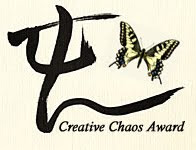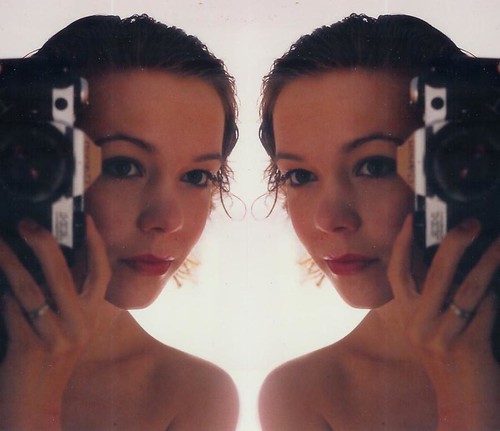 An Elegant Wrist
An Elegant WristRecently I've been asked about manic depression, endogenous depression and, for want of a better expression, crisis recognition. I'm an expert in only one area - me - so I will relate a little of my own story as well as a tale of the moment in which I saw a glimmer of light above me, even though I was at the bottom of a deep, cold & blasted hole. How can one be buffeted by ice cold, stormy winds whilst curled up against the brick & unyielding wall of your own personal pit? I don't know, but that's how it feels sometimes.
Some of you may feel that I shouldn't broadcast what I'm about to say, but I prefer to discuss it in the hope that my one voice will join the many who are now requesting that depression loses its stigma. So many people have themselves experienced depression, debilitating anxiety and other illnesses which bring on the dark night of the soul, but these conditions are viewed by many as guilty secrets. It is my belief that employers must reassess their response to mental illness - such a step would ease the lives of a vast number of people. In my opinion, such a move might also help to bring about an earlier recovery and possibly one that might endow the sufferer with greater resilience too.
So here we go. What is me? Why is me? What is wrong with me?
If you had asked me a year ago to describe myself, I would have said, 'mother, wife, daughter' and that would have been it. I did not know myself or recognise anything within myself. In my mind I was simply a series of roles and not a unified person. For a reason that I won't bore you with, I felt that I - my spirit - the essential me - had mentally died when I was 25. What remained was just a shell - a body - a thing. The professionals who have cared for me over the years haven't just marked me down as lacking self-esteem - they're fighting self-alienation.
During & after a conversation with one of the members of my CP Team last November, something began to change. I think I'm now beginning to 'read' myself & to recognise and identify some of the things about myself which may be useful tools to help me through the rest of my life. If it becomes a rewarding journey, so much the better. I would be happy if I could just say goodbye to the tortured thinking; if it also enables me to make the rest of my life a worthwhile experience, then I shall be blessed.
The CP guy I spoke to is really cool. He's down to earth, funny & full of common sense. He noticeably thought about what I said before asking further questions & he wasn't offended by my black sense of humour - in fact I think he enjoyed it. Sometimes he said that I flummoxed him. For instance, I asked him what was wrong with suicide - you can ask a vet to end your dog's suffering, but when a person wants to do the same for themselves, our society responds by declaring that they have lost their reason & sanity. He thought for a very long time before he smiled at me & said, 'You know, I don't know how to answer that one.'
He came to see me last November & I don't know why & I don't know how, but our conversation rapidly went 'off script' and we talked about a host of other things before he turned our discussion around to ask what I had wanted to do with my life before I hit an early & evil crisis that was unconnected with my troubled childhood. He listened to my answer. I had wanted to be an investigative journalist. It's my belief that most politicians don't themselves identify injustice - they're informed, but not insightful - whereas a writer can reveal & publicise an issue that needs to be addressed & confronted. This was the voice that I wanted to acquire - I didn't want power, but I did want to be a voice. Cool Guy asked why I wasn't doing this now. It took me a long time to confront the answer. I've lost my courage in myself. I have made it easy to hide from myself because I have appropriated blame & conferred it on to people & events that happened when I was younger. In other words, I am not using my early experiences to inform myself. Instead I am reinforcing the damage. By doing this, I avoid 'owning' my reaction to what has happened - instead I am caught up in the vortex of blame. But, as Cool Guy pointed out, this desire to hide & this lack of courage did not arise as a result of my childhood. I had actually emerged from my childhood with an ambition ( which is itself a measure of self-esteem) to write & report on what I had the courage to feel was wrong in the world. This could well have been a positive conduit. Suddenly I felt gripped - I felt that girl alive inside me. My childhood wasn't holding me back. I was not eternally cursed. Before my crisis, bad things had been stored inside me, but they had not overwhelmed me. They were not the trigger that caused my crisis though they did account for the unbearable flood that followed. Having been overwhelmed, I then became fearful & have remained so ever since. Cool Guy's suggestion was a simple one. 'Start with the girl', he said. 'Try to do what that girl would have done if she'd had the support that you have now when she met her crisis.'
That moment of feeling the vitality of the girl disappeared almost as quickly as it had appeared, but I recognised the taste of her freedom - she has reappeared on my horizon. I want to catch up with her. I can't go back & fulfil my earlier ambition, but once again, I WANT to do something of possible significance. I have to be careful though - I must tread carefully around bipolar. This is where the tool of creativity comes in. It's a mindful experience & it heals. I cannot change my thought processes without a lengthy period of careful work, but creativity is my balm & it also begins to feel like my future. If I don't manage to heal myself, I hope I will at least learn a method via which I can express my ideas & imagination. Either way, I hope to learn to be at peace with myself.
I need to scale the cliff faces of my DBT & CGT workbooks, but in these early stages, I am supplementing these tomes with my own researched list of 'Battle Books'. I should warn you that it's quite a long list and it's orientated to developing the life changing skills of mindfulness. It's been vetted by professionals so there's no quackery here.
The works of Nathaniel Branden
'Talking of Love on the Edge of a Precipice' by Boris Cyrulnik
'Fearless Creating: A Step by Step Guide to Starting & Completing Your Work of Art' by Eric Maisel
'Art & Fear: Observations on the Perils & Rewards of Artmaking' by David Bayles & Ted Orland
'The Van Gogh Blues: The Creative Person's Path Through Depression' by Eric Maisel
'Visual Journaling: Going Deeper Than Words' by Barbara Ganim & Susan Fox
The fun ones are:
'How to Make a Journal of Your Life' by Danny Price
'Visual Chronicles' by Linda Woods & Karen Dinino *
'Twyla Tharp's 'The Creative Habit; Learn It & Use it for Life'
Drawing on the Right Side of the Brain' by Betty Edwards - this book ostensibly teaches you about drawing but in my opinion, it's also a powerful course in mindfulness which is a key skill for people who suffer from stress, anxiety & depression.
'The Creative Licence: Giving Yourself the Licence to be The Artist You Really Are' by Danny Gregory. The latter's 'Everyday Matters' is a wonderful book too.
* To read more about Linda & Karen, head towards the 'Sisters on Sojourn' blog.
So there we are. A list of Battle Books that I thoroughly recommend.



.jpg)






